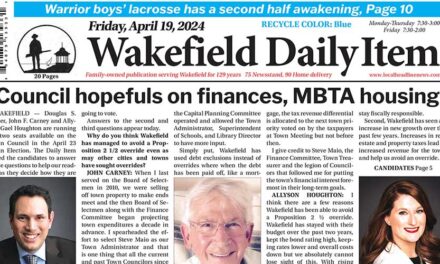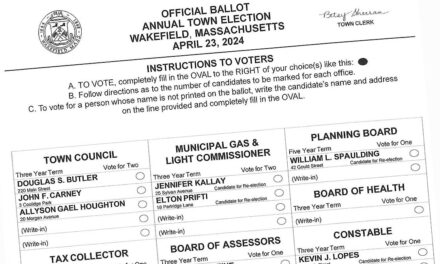Published in the December 6, 2016 edition.
By MARK SARDELLA
WAKEFIELD — A state requirement that student tests scores be used as the sole element in rating teachers and administrators has long been a major concern of educators and teachers’ unions. But a new proposal from state Commissioner of Education Mitchell Chester to address the issue is not entirely alleviating those concerns.
Up to now, school districts were supposed to develop a “student impact rating” of “High,” “Moderate” or “Low” for each teacher and guidance counselor using standardized test scores to measure whether an educator was instrumental in boosting student performance. But for a number of reasons, including the difficulty of rating teachers in subjects not tested by MCAS, few districts have fully implemented the plan.
Chester’s proposal would do away with using student test scores as the sole basis for rating teacher performance. The proposed new system would take into account other ways of evaluating teachers. But the fact that it would still incorporate student testing as part of the process is not sitting well with some educators.
“I don’t see any defensible way of rating the success of an educator that doesn’t take into account student learning,” Chester told the Boston Globe in a recent interview.
Chester’s proposed amendments were expected to be discussed at a meeting of the state Board of Elementary and Secondary Education last week. Chester also addressed the issue in a memo to the Board.
“As the Department has worked with stakeholders to develop guidance and solicit feedback on the rollout of the student impact rating,” Chester noted, “we have heard concerns about assigning individual educators a student impact rating. At the same time, we have also heard from stakeholders that evidence of student learning, including evidence from common assessments and statewide assessments, is an important component of educator evaluation.”
Chester’s proposal would incorporate student test scores along with other observation-based evidence, such as lesson plans, in an annual review of job performance.
Wakefield schools’ Superintendent Dr. Kim Smith agrees with doing away with basing educator ratings solely on student test scores.
“I believe it is the right decision for the Board of Education to eliminate the separate, stand-alone, ‘Student Impact Rating’ as part of educator evaluation,” Smith told the Daily Item. “I am not in favor of the High, Moderate or Low scoring system and worry about the potential implications of a teacher’s rating narrowly derived from their students’ performance on just a few assessments.”
Smith said that she does not believe that Test scores alone paint a complete picture of the teaching and learning that happens in classrooms daily or the essential support provided to students by educators in nonteaching roles.
“To genuinely evaluate how educator practice influences student learning and growth, which is at the heart of the regulatory framework, I believe that student performance data on assessments should be just one piece of information to consider,” Smith said.
When looking at student learning and growth, Smith maintains, it is necessary to take into account factors that cannot be measured by a standardized test, such as how teachers create an environment where students feel safe to ask questions and take risks; the ways that educators develop students’ resilience, confidence, creativity and curiosity, and how educators support the development of students’ social/emotional skills and academic behaviors.
“If we incorporate these qualitative growth measures in balance with quantitative data from tests and other assessments,” Smith added, “we begin to tell a more complete narrative of classroom learning and the effect that a wide range of teaching practices can have on student growth and development. In the Wakefield Public Schools, we are already striking this important balance between quantitative and qualitative measures using a rubric that we developed last year.”
That rubric, dubbed “Standard 5,” was well-received when Smith presented it to the state Board of Education last May.
Smith described how the Wakefield school system is already using student learning as a seamless part of a larger growth process for all teachers.
“During the evaluation cycle,” Smith said, “teachers will 1) reflect on evidence from their professional practice, 2) assess how their students are learning and growing and 3) implement tiered strategies to meet the needs of individual students. Evaluators provide essential guidance and support in this process, to meet the primary objective of our educator evaluation system: to foster continuous educator growth and improved student learning outcomes.”
Chester’s proposal was expected to be released for public comment following last week’s Board of Education meeting.
“After reviewing the responses received during the public comment period and determining whether further changes are needed,” Commissioner Chester said, “I plan to bring the amendments back to the Board in February 2017 for final adoption.”




